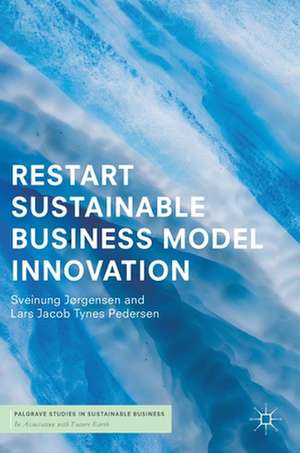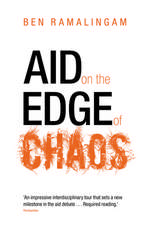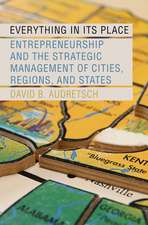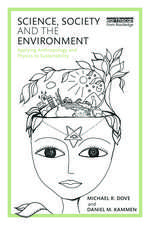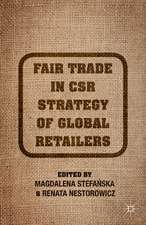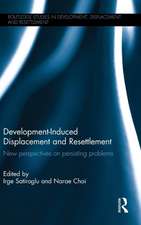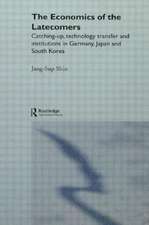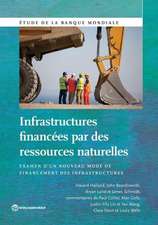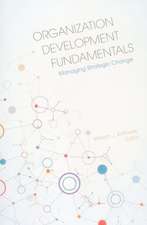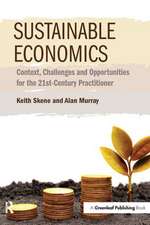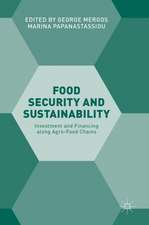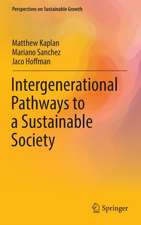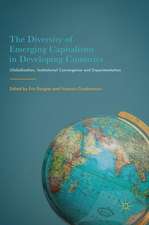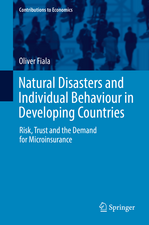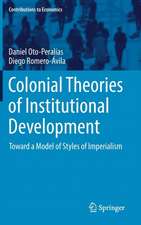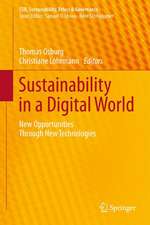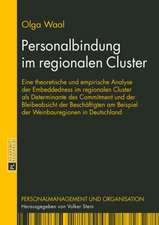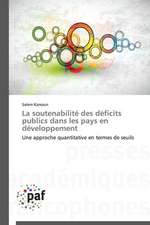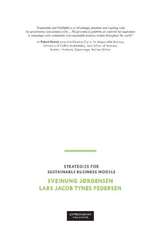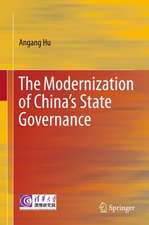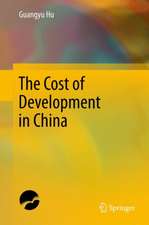RESTART Sustainable Business Model Innovation: Palgrave Studies in Sustainable Business In Association with Future Earth
Autor Sveinung Jørgensen, Lars Jacob Tynes Pedersenen Limba Engleză Hardback – 13 aug 2018
| Toate formatele și edițiile | Preț | Express |
|---|---|---|
| Paperback (1) | 220.13 lei 43-57 zile | |
| Springer International Publishing – 8 ian 2019 | 220.13 lei 43-57 zile | |
| Hardback (1) | 226.45 lei 43-57 zile | |
| Springer International Publishing – 13 aug 2018 | 226.45 lei 43-57 zile |
Din seria Palgrave Studies in Sustainable Business In Association with Future Earth
- 20%
 Preț: 816.38 lei
Preț: 816.38 lei - 18%
 Preț: 1112.30 lei
Preț: 1112.30 lei - 18%
 Preț: 1388.85 lei
Preț: 1388.85 lei - 18%
 Preț: 1009.40 lei
Preț: 1009.40 lei - 18%
 Preț: 744.67 lei
Preț: 744.67 lei - 18%
 Preț: 894.34 lei
Preț: 894.34 lei - 15%
 Preț: 637.78 lei
Preț: 637.78 lei - 18%
 Preț: 894.79 lei
Preț: 894.79 lei - 18%
 Preț: 780.52 lei
Preț: 780.52 lei - 18%
 Preț: 1108.84 lei
Preț: 1108.84 lei - 18%
 Preț: 1222.01 lei
Preț: 1222.01 lei - 18%
 Preț: 949.42 lei
Preț: 949.42 lei - 18%
 Preț: 1004.00 lei
Preț: 1004.00 lei - 18%
 Preț: 1001.32 lei
Preț: 1001.32 lei
Preț: 226.45 lei
Nou
Puncte Express: 340
Preț estimativ în valută:
43.33€ • 45.36$ • 36.07£
43.33€ • 45.36$ • 36.07£
Carte tipărită la comandă
Livrare economică 31 martie-14 aprilie
Preluare comenzi: 021 569.72.76
Specificații
ISBN-13: 9783319919706
ISBN-10: 3319919709
Pagini: 246
Ilustrații: XXIII, 253 p. 26 illus.
Dimensiuni: 148 x 210 x 19 mm
Greutate: 0.49 kg
Ediția:1st ed. 2018
Editura: Springer International Publishing
Colecția Palgrave Macmillan
Seria Palgrave Studies in Sustainable Business In Association with Future Earth
Locul publicării:Cham, Switzerland
ISBN-10: 3319919709
Pagini: 246
Ilustrații: XXIII, 253 p. 26 illus.
Dimensiuni: 148 x 210 x 19 mm
Greutate: 0.49 kg
Ediția:1st ed. 2018
Editura: Springer International Publishing
Colecția Palgrave Macmillan
Seria Palgrave Studies in Sustainable Business In Association with Future Earth
Locul publicării:Cham, Switzerland
Cuprins
Chapter 1: Why sustainable business model innovation?.- Chapter 2: The seven steps of the RESTART framework.- Chapter 3: RESTART: what, why, how and so what?.- Chapter 4: Roadmap to a RESTART.- Chapter 5: Redesign rather than standstill.- Chapter 6: Experimentation rather than turnaround.- Chapter 7: Service-logic rather than product-logic.- Chapter 8: The circular rather than the linear economy.- Chapter 9: Alliances rather than solo-runs.- Chapter 10: Results rather than indulgences.- Chapter 11: Three-dimensionality rather than one-dimensionality.- Chapter 12: RESTART before it is too late.- Chapter 13: A recap of the RESTART framework.- Chapter 14: A process model for sustainable business model innovation.- Chapter 15: Avenues for future research.- Chapter 16: Case study: A RESTART for Scanship.- Chapter 17: Case study: A circular business model for Orkla and BIR?.
Notă biografică
Sveinung Jørgensen is Associate Professor at Inland Norway University of Applied Sciences, Norway. He holds a PhD degree from Karlstad University. He does research on the design and innovation of sustainable business models and field experiments on socially and/or environmentally beneficial behaviours. He serves on numerous boards, acts as a strategic business advisor and is an active public speaker.
Lars Jacob Tynes Pedersen is Associate Professor and head of the Centre of Ethics and Economics at NHH Norwegian School of Economics, Norway. He holds a PhD degree from the same institution. He does research on the design and innovation of sustainable business models and field experiments on socially and/or environmentally beneficial behaviours. He is an active public speaker and strategic business advisor.
Lars Jacob Tynes Pedersen is Associate Professor and head of the Centre of Ethics and Economics at NHH Norwegian School of Economics, Norway. He holds a PhD degree from the same institution. He does research on the design and innovation of sustainable business models and field experiments on socially and/or environmentally beneficial behaviours. He is an active public speaker and strategic business advisor.
Textul de pe ultima copertă
Taking the business model as point of departure, this open access book explores how companies and organizations can contribute to a more sustainable future by designing innovative models that are both sustainable and profitable. Based upon years of research, it draws together theoretical foundations and existing literature on the topic of sustainable business alongside case studies and practical solutions. After examining the theoretical foundations of sustainable business model innovation, the authors present their own framework – RESTART. Consisting of seven factors, this framework can be the basis for restarting any business model. The final section outlines a research agenda for sustainable business informed by the perspectives and frameworks put forward in this book.
Caracteristici
Outlines a new framework for sustainable business model innovation: RESTART Combines theory with contemporary case studies Offers practical recommendations for companies and organizations to contribute to a sustainable future
